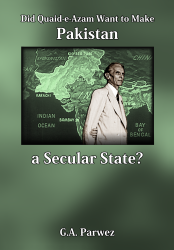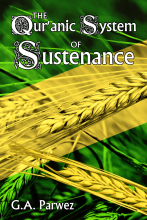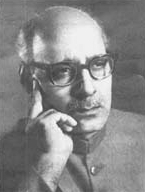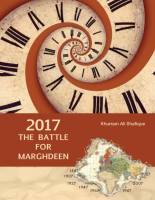Anyone who visits the VFA on a regular basis may have had a bit of a surprise when they visited the site today. It’s been completely revamped thanks to some amazing new members in the VFA’s team (and especially ‘web dude’!) Do pop on over and check it out!
Secular Jinnah – Saleena Karim Interview – Full
TRAILER FOR MY INTERVIEW AT LIGHTUPWITHSHUA Here are all the links to my 3-part interview with Shua Khan Arshad at her podcast on conscious living and parenting. Please feel free to like and share this post, and please like, share and comment at YouTube too. PART 1 – discovery of the Munir quote, reactions to
Happy New Year 2020
Well, it’s the end of the year, and also the decade. Happy New Decade! May 2020 and the next ten years be peaceful and prosperous for all.
Saleena Karim Breaks Her Silence – Secular Jinnah Interview
In the 15 years since I began writing the books titled Secular Jinnah I have always refused interviews, for my own reasons (with the exception of one or two written online ones). But in August, a chance query email from a fabulous lady, Boston-based Shua Khan Arshad, led to my decision to finally give an
Secular Jinnah & Pakistan: Revised Enlarged Edition Released Today
Seven years to the day after the original release of Secular Jinnah & Pakistan: What the Nation Doesn’t Know, I am pleased to announce that the second revised and enlarged edition has just gone into print, with a brand new gold version of the original cover. Oh, and with plenty of revisions, of course. They include:
The book that launched my writing career – Foreword
 In my last post I announced the release of the book Did Quaid-e-Azam Want to Make Pakistan a Secular State?. I’m reproducing the foreword below, in which I explain how the book prompted me to write Secular Jinnah.
In my last post I announced the release of the book Did Quaid-e-Azam Want to Make Pakistan a Secular State?. I’m reproducing the foreword below, in which I explain how the book prompted me to write Secular Jinnah.
But first, a note for those who are unfamiliar with the debate over Pakistan and are wondering about the title.
On the word ‘secular’
Simply put, the word ‘secular’ in the above title is really a synonym for ‘materialist’. Many Pakistanis don’t differentiate between the two concepts, because they see materialism as the final outcome of separating religion (and its moral values) from state affairs. This is why many Pakistanis will say they have no problem with the concept of equality before the law (usually identified with a secular state) and yet won’t identify themselves as secularists.
So, onto the Pakistan question. Pakistanis have never agreed over whether Pakistan was meant to be a ‘secular’ (materialist) state or an ‘Islamic’ one (that is, a religious state). In my books, I have tried to show that Pakistan (in the eyes of its founders) was not meant to be either a secular or a religious state, nor was it supposed to be a paradoxical mix of religion and secularism. So if it was none of the above, what was it? The answer can be found only when we understand what secularism and religion respectively mean. In short they are practically two sides of the same coin, in that one focuses on materialism, and the other on spiritualism. That makes both of them not so much wrong as incomplete. And yet we can’t complete them by combining them, because the two are also totally incompatible for reasons I need not go into here. At any rate, a combination or synthesis of religion and secularism is also impossible. In my books I have described a fourth possibility in line with the Quranic view of reality, which encompasses both the material and the spiritual simultaneously – not as two separate things combined, but, to borrow from Iqbal’s description of Islam, “a single unanalysable reality which is one or the other as your point of view varies” – a bit like the uncertainty principle in quantum physics. Parwez operated on the same matter-spirit oneness principle in his book The Qur’anic System of Sustenance.
Purchase details (including discounted rates for both this title and The Qur’anic System of Sustenance) can be found if you scroll to the end of this post.
Without further ado, here is the Foreword.
—————————————————————————–
FOREWORD
This booklet is of special significance to me. It is directly responsible for the publication of my first book, and indirectly for my second as well. Indeed, this short publication can be credited for practically launching my writing career.
Avid readers of Pakistani history will know that Chief Justice Muhammad Munir’s From Jinnah to Zia (1979) is said to be one of Pakistan’s all-time best sellers. This is because Munir was the first to openly declare that M.A. Jinnah, founder of Pakistan, was a ‘secularist’ (i.e. he advocated the separation of religion and state as in modern democratic states). Coming as it did from a former Chief Justice, this declaration carried much weight for Pakistani readership, and indeed, as Munir testified in his book, across the world the as well.
G.A. Parwez, who had known Jinnah personally and had been his counsel on matters relating to Islam, wrote a rebuttal in Urdu in 1980 soon after the second edition of Munir’s book was released. The English translation of that text can be found in the following pages. However, the original rebuttal missed one vital piece of information; and since this missing information was the catalyst for some completely new and important research I conducted some twenty-five years later, I would like to share the details for the benefit of the reader.
I originally came to translate this booklet not for Tolu-e-Islam, but for my father. In 2003 he had published a book titled Quran aur Pakistan (Sheffield: Bazm-e-Ilmofunn), containing his own Urdu poetry alongside a collection of G.A. Parwez’s writings, and the text of this booklet appeared as one of its chapters. My father and I worked together on the English translation, and in the course of crosschecking the references, I obtained a copy of From Jinnah to Zia. This was when I first noticed a quote not accounted for in Parwez’s rebuttal.
Parwez has written that in From Jinnah to Zia Munir relied on two pieces of evidence to support his claim that Jinnah was a secularist. They are:
1) Jinnah’s statements against theocracy
2) Jinnah’s inaugural address to the Pakistan Constituent Assembly, on11 August 1947
However I found that Munir had actually relied on not two, but three pieces of evidence. The third and most important piece of evidence that Munir produced (and which he cited several times for emphasis) was Jinnah’s interview to Reuters, dated 21 May 1947 (dated incorrectly in Munir’s book as 1946). In this interview, Jinnah supposedly said that he envisioned Pakistan as a ‘modern democratic state with sovereignty resting in the people’ (Munir 1980, p.29). He stressed that the words were at odds with the Objectives Resolution, which states that ‘sovereignty rests with Allah’. At this point, since Parwez had not addressed the quote, I decided to try and find the original source to look at the context in which it might have been used. When I did obtain it around a month later, it emerged that not only was the date wrong, but the quote was actually a fake. Since that time, I have referred to it as the ‘Munir quote’.
This was just the beginning of my journey in learning about the Pakistan story. At first I intended only to write an article on this quote, but I had underestimated the significance of what I had uncovered. Munir’s quote, along with the two pieces of evidence that Parwez had highlighted, had long become a formulaic argument copied virtually verbatim time and again by every kind of writer, from the journalist to the historian, and accepted blindly as fact, without question. No one had thought to check on the original source and in fact no one even seemed to know or care as to where it originated. My first book, Secular Jinnah: Munir’s Big Hoax Exposed (2005) was the unexpected outcome of my first round of research, and here I wrote that the original source was probably Munir’s From Jinnah to Zia. But I was later to discover that this was not the original source of the quote. At any rate, my book was short and it hardly touched on Pakistan’s founding history. Over the next five years, my research continued and intensified, and I resolved to release a revised edition containing, among other things, updated information on the misconceptions about Jinnah and the Pakistan story. Instead I ended up writing an entirely new book. This was a complete political biography on Jinnah which also covered my updated research on the Munir quote. By the time I released Secular Jinnah & Pakistan: What the Nation Doesn’t Know in 2010, I had learned that the Munir quote had its origins not in Munir’s 1979 book, but in another famous publication authored by Munir: The Report of the Court of Inquiry Constituted under Punjab Act II of 1954. It is better known as the Munir Report, since it made Munir a celebrity and he became Chief Justice of the Federal Court soon after the inquiry ended. Following the Munir Report, the first time that the fake quote was used as supporting evidence for a secular Pakistan was in Pakistan’s Constituent Assembly in August 1954. This quote had never been cited before, simply because it didn’t exist; and so this was the first time that the secularist politicians of Pakistan succeeded in silencing their opponents outright. Thereafter Munir’s quote was accepted as a legitimate piece of evidence for fifty years.
As for Quran aur Pakistan, although we began its translation in 2004, we were unable to publish it due to technical issues, and subsequently this also delayed the publication of this booklet for a long time. I am happy to know that the booklet at least is finally going into print. It may be one of Parwez’s lesser known works, but without it, the Munir quote may not have come to light for another fifty years. For that reason, it certainly has great historical value; but to me personally, for my own reasons, its worth is immeasurable.
Saleena Karim,Nottingham
23 August 2012
—————————————————————————–
Did Quaid-e-Azam Want to Make Pakistan a Secular State?
(Also available now at Amazon)
5.99 USD (CreateSpace & Amazon.com)
4.99 GBP (Amazon UK)
Paperback, 64 pages
Published by Islamic Dawn Society and Tolu-e-Islam Trust in association with Libredux Publishing. Translated and edited by Saleena Karim & Fazal Karim.
Get 25% off this book if you purchase from CreateSpace, using the following discount code at checkout (limited offer):
Go to this page
Discount code: GWRCFWQK
—————————————————————————–
You can also get The Qur’anic System of Sustenance at the same 25% discount if you apply this code at CreateSpace:
Go to this page
Discount code: AN3UM9VX
Did Quaid-e-Azam Want to Make Pakistan a Secular State? – out now
From the blurb
This booklet is Ghulam Ahmad Parwez’s rebuttal to Chief Justice Muhammad Munir’s bestseller, From Jinnah to Zia (1979), containing ample evidence from Jinnah’s written statements and speeches to counter Munir’s claims that Jinnah was a secularist. As one-time counsel to Quaid-i-Azam M.A. Jinnah on matters pertaining to Islam, and as one of the few who could visit him without an appointment, Parwez was in a position to speak with authority on the founder of Pakistan’s political convictions.
Here it is. At last, the book that started my writing career has gone into print. (You have no idea how long I have been waiting to publish this book.) It’s the translation of Kya Quaid-e-Azam Pakistan ko secular state banana chahte tai? (lit. Did the Great Leader want to make Pakistan a secular state? For those of you who don’t know, Quaid-e-Azam was an honorific title used by the Muslims of colonial India to refer to M.A. Jinnah, the constitutional lawyer who eventually became the founder of Pakistan).
I was originally going to explain the full background of how this book links to my work in this post, until I realised that the foreword of the book does exactly that. It’ll be reproduced in my next post.
But in brief: Parwez wrote this booklet in 1980, as a rebuttal to Chief Justice Munir’s From Jinnah to Zia (1979). Munir had argued that Jinnah was a ‘secularist’. Parwez aptly countered the claim, but he overlooked a certain statement attributed to Jinnah – one that would finally be exposed as a fake 25 years later by yours truly.
For a short time, you can get this book – and also the The Qur’anic System of Sustenance – at 25% discount. Details follow.
—————————————————————————–
Did Quaid-e-Azam Want to Make Pakistan a Secular State?
(Also available now at Amazon)
5.99 USD (CreateSpace & Amazon.com)
4.99 GBP (Amazon UK)
Paperback, 64 pages
Published by Islamic Dawn Society and Tolu-e-Islam Trust in association with Libredux Publishing. Translated and edited by Saleena Karim & Fazal Karim.
Get 25% off this book if you purchase from CreateSpace, using the following discount code at checkout (limited offer):
Go to this page
Discount code: GWRCFWQK
—————————————————————————–
You can also get The Qur’anic System of Sustenance at the same 25% discount if you apply this code at CreateSpace:
Go to this page
Discount code: AN3UM9VX
Booklet on Jinnah – release in next 24 hours
The Qur’anic System of Sustenance – editor’s foreword
Excerpted from The Qur’anic System of Sustenance by G.A. Parwez
(trans. Saleena Karim & Fazal Karim)
FOREWORD (editor)
 Ghulam Ahmad Parwez was without doubt one of the greatest minds of the last century. In his time he was misunderstood and deemed a heretic in his own country, and his essentially rationalist approach was viewed with much suspicion in the Muslim world. Since his death in 1985 however, his popularity has steadily grown both in Pakistan and across the world. The full impact of his work has yet to be properly assessed and appreciated.
Ghulam Ahmad Parwez was without doubt one of the greatest minds of the last century. In his time he was misunderstood and deemed a heretic in his own country, and his essentially rationalist approach was viewed with much suspicion in the Muslim world. Since his death in 1985 however, his popularity has steadily grown both in Pakistan and across the world. The full impact of his work has yet to be properly assessed and appreciated.
My father (Fazal Karim) and I feel honoured to have had the opportunity to translate Parwez’s seminal work, Nizam-e-Rabbubiyat, into English. The Urdu title literally translates to System of (Universal) Sustenance, but over the years among those discussing his work in English it has wrongly been referred to as the ‘Qur’anic Economic System’, which is not only a misnomer, but also exposes a gross misinterpretation of Parwez’s thought. Although this book discusses communism and capitalism in light of Qur’anic principles, and, notwithstanding the fact that Parwez describes this book as a ‘monograph on the subject of economics’ [1], it is fair to say that it does not, as such, present a purely economic system with the mere aim of meeting material needs. Whereas the very word ‘economy’ implies an acceptance of the scarcity principle, the Divine principles of sustenance cannot be characterised together as ‘economy’, being based on the Qur’an’s self-attested principle of ‘abundance’. Nor should the Urdu word nizam (system) in the title be taken to mean a closed system. On the subject of the word deen (usually translated as ‘religion’), Parwez has stated elsewhere that whilst ‘way of life’ (or ‘system’) is the closest meaning of the Arabic, even this is insufficient. Deen certainly is a systemic word, but it does not literally translate to ‘system’. Since (to paraphrase Parwez) Islam as a deen equates to the Divine process of sustenance (Rabbubiya) at work throughout the universe, [2] his chosen Urdu word nizam likewise does not point to a fixed system, but to a set of principles taken together as a whole.
Moreover, this book is really an attempt to delineate the Qur’anic method of meeting human needs in their entirety – both material and ‘spiritual’. Parwez himself remarks in Chapter 4: ‘Meeting our physical needs is a means to an end, and not an end in itself’. Again in Chapter 8, he writes: ‘The higher purpose of the Divine system of sustenance is not just to meet the physical needs of people. Indeed, meeting physical needs is only a rudimentary and superficial aim. From the Qur’anic perspective this is only a step in the direction of life’s true purpose, which is to develop and perfect the self, and this can be achieved only by enacting the principle of universal sustenance’.
In short, Parwez has tried to show that the Divine system of sustenance not only serves to rewrite the generally accepted rules of economy, but also those of human society, and by extension, of reality. While there are those who would view Parwez’s views as utopian and unrealistic, he was inspired by the Qur’anic line that it is all ‘easy for God’ (as mentioned in Chapter 8 of this book) – suggesting that what may seem difficult in view of humanity’s present mindset would in fact be very easy for a nation that understands the Divine Message.
The translation
This is a translation of the 1978 edition with minor editorial revisions and additions made by the translators solely for the purpose of clarifying the content of the main text. We have also added footnotes (all marked Translators’ note), again to either expand upon or clarify statements made in the original Urdu text.
The chief difference between the original 1955 and 1978 editions was the addition of some appendices by Parwez, namely: Islami Socialism (Islamic Socialism), 2) Jahaan Marx Na-Kaam Reh Geya (Where Marx Failed), Mao Tse Tung aur Qur’an (Mao Tse Tung and the Qur’an: A Comparison) and Riba ke Behs (The Debate Over Interest). As these titles suggest, Parwez wrote these appendices mainly to address communism, which was still operational in both Russia and China at the time. Since then communism has essentially failed worldwide (even China, while technically remaining a communist state, is behaving increasingly like a modern capitalist state in practice), and so the content of these appendices is no longer relevant to the present economic climate. For this reason we have not reproduced them. However we have translated two important sections on zakaat and riba from the third of Parwez’s appendices, Riba ke Behs, and included it as a short additional chapter, inserted before the Afterword.
When it comes to quotes from the Qur’an, we have taken the liberty of inserting well-known English translations (slightly edited to modernise the English) wherever Parwez has referred to particular verses and reproduced the Arabic. Parwez’s approach (as he explains in his Preface to the 1978 edition, also reproduced in this book) was to translate meaning for meaning (exposition) rather than translate literally word for word. This is because literal translations sometimes fail to convey the full meaning of the Qur’anic text – a fact universally acknowledged by all translators of the Qur’an. Nevertheless, wherever the meaning of Parwez’s expositional translation is close to a traditional version, we have seamlessly combined the two. This has the added benefit of showing the reader how to better understand literal translations. At other times, Parwez’s expositional text is either included in the main text immediately following the traditional quotations, or occasionally part of it appears in footnotes.
We would like to express our heartfelt thanks to Mr Maqbool Mahmood Farhat of Ilford, Essex, who went to a great deal of trouble in locating the vast majority of the references in this book. Some of the works were not fully referenced in the original Urdu text, which made the task of locating them that much more difficult. To Mr Farhat goes the credit of saving us much time in this area.
Finally, it goes without saying that no translation is ever truly perfect, and so we end by saying that any deficiency in this translation is ours and ours alone.
Saleena Karim, Nottingham, UK
15 July 2012
[1] See Parwez’s Preface to the 1978 edition. In fact it seems he wrote this line only because he had added three appendices on economic subjects.
[2] See end of Chapter 1.
A new book with ‘system’ in the title – out now
 Recently I announced that Libredux Publishing was about to release a book in collaboration with another organisation (Tolu-e-Islam, Lahore). The book is out now in paperback, and its title is The Qur’anic System of Sustenance, the long-awaited English translation of G.A. Parwez’s Nizam-e-Rabbubiyat (1955). That makes it the second Libredux book with the word ‘system’ in the title. 🙂
Recently I announced that Libredux Publishing was about to release a book in collaboration with another organisation (Tolu-e-Islam, Lahore). The book is out now in paperback, and its title is The Qur’anic System of Sustenance, the long-awaited English translation of G.A. Parwez’s Nizam-e-Rabbubiyat (1955). That makes it the second Libredux book with the word ‘system’ in the title. 🙂
The book has just become available at CreateSpace, as well as at Amazon US and Amazon UK. I will reproduce the editor’s foreword in my next post. In the meantime, allow me to introduce its author.
Ghulam Ahmad Parwez – not to be mixed up with the founder of Ahmadism, Mirza Ghulam Ahmad – was a non-sectarian Muslim thinker with a rationalist approach to Islam. He was born in British India in 1903 and was an activist of the Pakistan movement. He was an associate of Dr. Iqbal; and it was at Iqbal’s suggestion that he set up his monthly journal Tolu-e-Islam in 1938, which is still in print today. He was also an adviser to M.A. Jinnah, the founder of Pakistan. Parwez received a posthumous Tehrik-e-Pakistan (Pakistan Movement) Gold Medal for his services in 1989. But he is best known for his outspoken views on religion, which he considered to be the antithesis of true Islam – and an obstacle in the way of unlocking humanity’s full potential.
Controversy with a capital ‘S’

G.A. Parwez (1903-85)
Parwez wrote numerous books and articles, including the aptly-titled Islam: A Challenge to Religion (his only title originally written in English), a 4-volume lexicon of the Quran (Lughat ul Quran), and a 3-volume expositional and scientific translation of the Quran (Mufhoom al Quran). But perhaps his most important work was Nizam-e-Rabbubiyat (1955), which translates literally to ‘system of (universal) sustenance’. When my father and I translated this book, we changed the title to include the word ‘Quranic’ because the word Rabbubiyat is derived from one of the names of God (Rabb) in the Quran. At the time of its release, the book generated a lot of controversy. Some suggested that his book was a thinly-disguised communist manifesto, due to his anti-capitalist views and the fact that his proposed ‘system’ had a somewhat socialist bent. But in fact Parwez was opposed to both capitalism and communism on the grounds that they are purely materialistic and reject the spiritual (just as he was opposed to religion on the grounds that it is purely spiritualistic and rejects the material).
A misnomer
Parwez said he was actually offering a Quran-inspired economic system as a third alternative to both. But was he really talking about an economic system? Not at all. It would take me far too long to explain why in this post – and anyway, it’s covered in the foreword that will appear here soon. But suffice it to say that what makes Parwez’s proposed ‘system’ different from capitalism and communism is that it is not confined to the material. In other words, it covers more than just economy. The ‘system of sustenance’ presented by Parwez should be understood in much the same way as I have described ‘Libredux’ in Systems – as an open-ended structure distinguished only by the universal ideals at its core. To borrow Parwez’s words, this type of ‘system’ is a means to an end, and not an end in itself.
And what is that end?
The answer is in this very post. Tell me if you spotted it.
Postscript: To celebrate the launch of this title, it will be made available at a reduced price for a limited time. Details to follow in my next post.
A new Libredux title – again!
In the next week or so Libredux Publishing is going to release a new title – this time in association with another publisher (a literary organisation that I will introduce in another post).
My father and I were commissioned to translate an Urdu book last year, and I offered to also help put into print (since I already had prior indie publishing experience, and had also published a few books for another author). At the time, Libredux Publishing had not yet come into existence. Now it is the named publisher. 🙂 This means that Libredux will now have three titles to its name in the space of just one year. Not bad for an imprint that I only technically set up for Systems!
Oh, actually, make that four titles. It so happens that we’ve translated two titles for the aforementioned organisation.
More soon.
2017: The Battle for Marghdeen – paperback out now
 And now … it’s out! Libredux Publishing is proud to announce that the paperback edition of Khurram Ali Shafique’s book, 2017: The Battle for Marghdeen, has gone into print today, and is already available for purchase here. It will become available at Amazon soon as well, probably by next week. Ebook is available here.
And now … it’s out! Libredux Publishing is proud to announce that the paperback edition of Khurram Ali Shafique’s book, 2017: The Battle for Marghdeen, has gone into print today, and is already available for purchase here. It will become available at Amazon soon as well, probably by next week. Ebook is available here.
If you read this short but powerful book, please send me your reviews, or post them at Amazon.
Intro from the back cover follows.
***
Marghdeen is an ideal society conceived by Dr. Sir Muhammad Iqbal (1877-1938), a foremost thinker of modern times. It is a world where life is inside-out, people know their destinies and there is no poverty, neediness, crime or injustice.
In 2017: The Battle for Marghdeen, the author shows how such a society can be achieved in a short space of time, as long as we are prepared to change our perception about the world we live in. The book presents the basic principles for achieving Marghdeen, illustrated with examples from modern history. There is a special emphasis on societies that already acknowledge Iqbal as their thinker, but these principles can be applied anywhere in the world.
***
One of the finest achievements of the human mind is to see, to understand, and to put the things seen and understood into a greater perspective. With Khurram Ali Shafique, some kind of thinking of the heart has returned into the arena: a greater perspective, so to speak. – Dr. Thomas Stemmer
2017: The Battle for Marghdeen – paperback release soon
I’m pleased to announce that Khurram Shafique’s 2017: The Battle for Marghdeen, which was released by Libredux Publishing on 14 August 2012, is about to be released in paperback. Date to be confirmed, but likely to be in a few days. Watch this space for updates.









